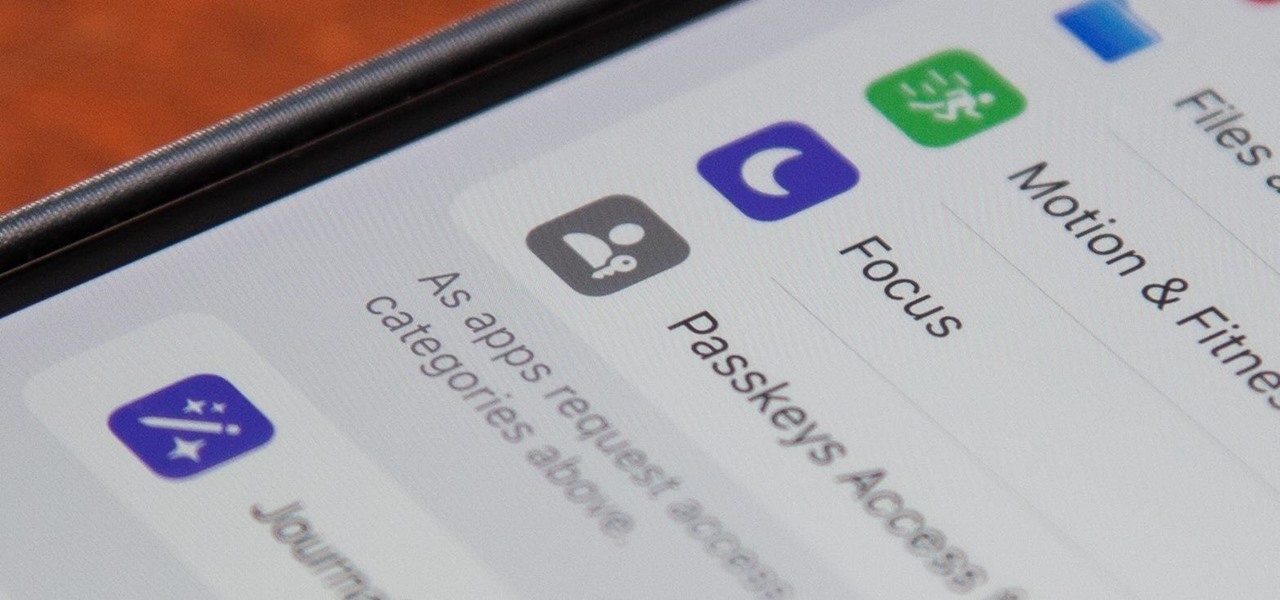
Apple released iOS 17.4 on March 5 with over 30 new features, but now it's iOS 17.5's turn for the spotlight. The update, currently available as a release candidate, gives us a few interesting updates and changes for iPhone, including a new word game, and there's even a sneak peek at what could be coming in the stable build.

Apple's iOS 16.3 update for iPhone had impressive new features, but iOS 16.4 might impress you even more.

Apple's iOS 15.4 update for iPhone is out after 46 days of beta testing, and it has some exciting features you won't want to miss. Here's everything you need to know about the new software.

Check out this video tutorial to see how to bluesnarf a Nokia 6310i handset (cell phone). What is Bluesnarfing exactly?

System Tool. It sounds like something your Windows computer might need, but it's the exact opposite.

Children under the age of 13 possess insight that can blow the minds of their elders, but not the wherewithal to make important life choices for themselves. This is exactly why there are strict rules against marketing cigarettes to them. In 2000, a law went into effect called the Children's Online Privacy Protection Act that institutes similar consumer protections for our youth's online identities, prohibiting companies from soliciting personal information from children under 13 years of age ...
More and more websites implementing "like buttons" from Facebook, Google and Twitter. However, these buttons transmitting data to the operator of their network platforms already when the page loads – so completely without users approval.

Here's somethin' too-good-for-words, via CAKES! CAKES! CAKES!, my WonderHowTo World (P.S. you can start your own world or join others - learn more here).

Via Daily Mail: "Growing up I have always wanted a doll made in my likeness," explained Chidi, 35-year-old mother of four.
Education Laws: Compulsory Education Law

Professor Wafaa Bilal of New York University plans to soon undergo a surgical procedure that would temporarily implant a camera in the back of his head. The project is being commissioned for an art exhibit at a new museum in Qatar. The Iraqi photographer will be a living, breathing cyborg for an entire year, during which the implanted camera will take still photos every minute, simultaneously feeding the images to monitors at the museum.

The already robust and ingenious Nmap tool has received a whole slew of new scanning scripts that can be used to do all sorts of naughty endeavors. Notably, the SQLi module, since it is a necessary evil that we must cover here at Null Byte. This major update is going to fuel today's lesson.

Video games are the newest major expressive media. As such, their role in society is still being defined continuously. A monumentally important example of this took place yesterday at the US Supreme Court. After a long deliberation, the highest court in the land handed down a decision invalidating a California law banning the sale of violent video games to minors on the grounds that video games are protected speech under the First Amendment, like movies and books.

By now, many of you may have heard about iPhone tracking and recording your location data, but is there anything else being extracted from cell phones without our knowledge? If you're a Michigan state resident, the answer is an alarming "maybe".

First off, Facebook rolled out @facebook.com email addresses for everyone nearly two years ago, so that's nothing new. But what is new is that they've recently defaulted everybody's visible email address that's seen on their Facebook Timelines. So, if you had your Gmail address listed for all to see on your profile's "About" section, it's now been replaced to the default @facebook.com email address.

Law enforcement can make a lot of folks cringe. Too often do we hear on the news, and even experience in our own lives, the unjust way that an unacceptable portion of law enforcement treat the very citizens they are supposed to protect. People's rights are violate each and every day by law enforcement, simply because they are timid and uneducated with the laws of society. This dirty trickery shouldn't be played on harmless citizens under any circumstances.

Welcome to the second Null Byte in a series educating you on Social Engineering awareness and techniques. Today, I'm going to show you how a saavy Social Engineer would trick a friend into unknowingly surrendering their Facebook password. My intent is to warn and demonstrate how easy it is to succumb to phishing via Social Engineering, and therefore expose yourself.

Oh, teenagers. Maybe you would be better off planning a scavenger hunt for the screaming toddlers. Just kidding! Despite the mood swings, teens will enjoy a scavenger hunt more than younger kids. Some things to keep in mind, though:

Netflix may be killing its competitors, but they're losing fans thanks to their reputation for rolling out interface updates without user knowledge or consent. PlayStation 3 owners were upset at the Netflix interface change earlier this year, and now nearly 5,000 diehard Netflixers are irate at the website's new look for its Watch Instantly section.

Starting in 1961 the FBI and an army of other non-believers, wiretapped MLK. All found nothing but gossip. No one was able to nail him with any evidence of sedition.

It's never too late--in fiction or in life--to revise - Nancy Thayer, author

OSPD1 In 1978, the first SCRABBLE Dictionary was conceived and published by Merriam-Webster, with the help of the National Scrabble Association (NSA). The idea was to include any word that was found in one of the five major dictionaries at the time:

So, you scratched up your $500 Adobe CD and now it's unreadable. You could go buy a new one, but you already purchased it! Searching The Pirate Bay and downloading some Adobe software can usually be easy enough, but what should you watch out for?






















